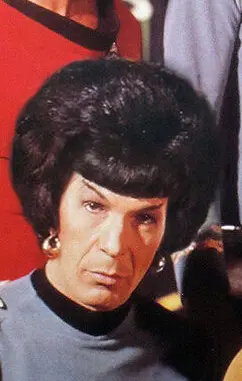I’d appreciate a sanity check for what I’m planning to do later today.
I bought a minisforum um890 recently. It has 2 m.2 nvme ports. I have the system running nobara off one drive currently, the other is unfilled. The drive has file system encryption enabled.
I backed up the root folder of my system to a 128gb usb using backintime. I enabled encryption when asked.
I plan to install a second ssd, enable raid 0 striping on the 2 drives in bios, boot from a live USB, then install nobara onto the new raid storage.
After that, i should be able to reinstall backintime then restore my backup right?
I’ve gotta ask, why RAID 0? I can’t think of a use case for that outside of very specific high IO applications in a server farm or something.
[This comment has been deleted by an automated system]
Oh for sure it made sense back in the HDD days, but with NVMe SSDs it’s not needed for most people anymore.
Use LVM, it will give you all the features of RAID 0 and more (encryption, migration, snapshotting, multiple volumes, etc)
For what its worth browsing directories full of hundreds to thousands of 4k images with previews is seamless : )
sanity check
enable raid 0 striping
Sanity checked: You’re mad.
Personally I would take this opportunity to segregate /home and / on two distinct SSDs. You can upgrade them separately in the future, optimize each of them for different purposes, you can fuff around with system partitions and trying new distros and whatnot without touching home etc.
There’s nothing outstanding to gain from RAID0 if you don’t need the increase in speed. You could make an argument for RAID1 but unless you actually need 100% availability, again, not worth the complications. Take frequent backups (preferably incremental) and that’s it.
As far as I’m aware there’s currently no way to setup drives in RAID without wiping both of them.
I also haven’t tried encrypting my home/boot drive but normally if I want to make a complete backup of a drive I use Clonezilla. It’s saved my bacon many time including recently copying a HDD that was in the process of dying on me.
It might be easiest to just backup your home directory and reinstall Nobara to the drives after you’d set them up in RAID.
If your install is using LVM (which anything installed over a bit more than a decade should be) you can set up the new second drive as a RAID with a missing device, add it as additional PV, use pvmove to move all PEs to the RAID, remove the old PV, and now add that disk to the RAID.
Does that really work for RAID 0? Since RAID 0 is striped (with “zero” redundancy), I wouldn’t expect an array with a missing device to work at all. But I can’t say I’ve ever tried.
It should work - possible that it won’t let you create a one disk raid 0, but creating a one disk raid 1 and then converting it to a two disk raid 0 should word. It’s been years since I played with a pure raid 0 (don’t see much sense in them), but managed conversion back then.
On ZFS you can just setup a mirror
Is “the bandwidth of a single nvme drive” actually a bottleneck for your application?
definitely not lol. Its my daily driver pc. I just have a spare drive and an empty slot.
Not sure what motherboard you have: Most consumer boards only support “FakeRAID”, which requires a kernel driver to actually function. Good luck finding a vendor who wrote a driver for Linux.
I’d definitely recommend software RAID instead, as you’ll have better support. I like btrfs, so I’d recommend you set up your new drives to use a btrfs RAID configuration. mdadm is another option, if you really like ext4.
You want raid 1 minimum
Corruption is a nasty thing…
Backing up / in it’s entirety might cause issues since there will be a lot of special files and crossed mount points. You should probably exclude /proc and any system folders from the backup. See: https://github.com/bit-team/backintime/blob/dev/FAQ.md#does-back-in-time-support-full-system-backups
Since you’re planning to start with a clean Nobara install, you can probably exclude those during the restore step. Just be careful not to restore files that are in active use by the running system.
Have you tested restoring from your backup? Can you do it from the liveUSB?
I bought a minisforum um890 recently.
How do you like it? I’m planning of buying one and putting Proxmox on it.
its neat, u can get 4k 240hz out of the usb4 output. Lm sensors didnt pick up the cpu temps. It’s VERY quiet, and the drives have an active heat sink on em. The nvme drive runs at around 40C.
Nice!
Thanks for the info.
Been eying one for quite a while. I have read that the build quality is good too. Along with a good cooling solution.
I’m actually thinking of using it as a replacement for my desktop/gaming machine. I only play 1 or 2 games anyway. Nothing the 780m can’t handle with ease. Also planning on 24/7 operation due to the much lower wattage.







